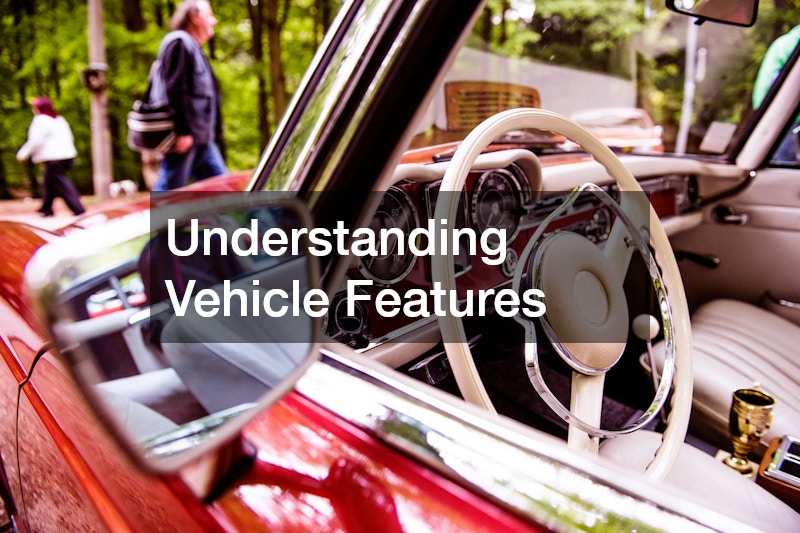Getting Started with Car Buying
Buying a car is a significant decision that involves various considerations. The dealer is equipped with knowledge and insights that can guide buyers toward making informed choices. This article provides a comprehensive guide on what the dealer wants you to know before purchasing a vehicle.
For many individuals, purchasing a car is one of the largest financial decisions they’ll make outside of buying a home. Beyond simply picking a make and model, it’s about understanding the full scope of the process—from financing and insurance to negotiation strategies and evaluating dealership credibility. The dealer plays a crucial role not only in helping you find the right car but also in ensuring you understand what you’re committing to before signing any paperwork.
Understanding Financing Options

One of the very first things the dealer will discuss with you is the various financing options. Whether it’s through bank loans, credit unions, or dealer financing, understanding these options is crucial for budget planning. Traffic violation lawyers often emphasize staying within your budget to avoid financial pitfalls post-purchase.
The dealer usually has partnerships with multiple financial institutions, offering competitive rates and deals to suit different credit profiles. It’s essential to explore offers from your bank as well as those provided by the dealership. This ensures that you receive the most favorable terms and interest rates for your car loan.
Research is key when evaluating financing options. The dealer can provide guidance and point you to resources for calculating monthly payments. Make sure to ask questions about terms like the annual percentage rate (APR), loan term, and any potential penalties for early repayment.
Also, consider getting pre-approved for a loan before visiting the dealership. This step can give you stronger negotiating power and a clear understanding of what you can afford. Pre-approval also simplifies the buying process by narrowing your choices to vehicles within your financial comfort zone.
Trade-In vs Selling Privately
When considering your old vehicle, the choice between trading it in at the dealer office or selling it privately can impact your finances. Trading in a car can be more convenient as the dealer handles all the paperwork and reduces the hassle of finding a private buyer. However, selling privately might get you a better price than what the dealer offers as a trade-in.
The dealer will appraise your vehicle based on several factors, including condition, age, and market demand. Having auto repair records showing diligent maintenance can enhance your car’s trade-in value. Additionally, the dealer may offer promotions that can make trading in more attractive, such as additional discounts on your new car purchase.
Consider the pros and cons of both options carefully. While trading in is simpler, always compare the offers you receive with private sale opportunities. It could be beneficial in terms of your overall budget when you decide to buy your next vehicle.
In either scenario, ensuring your car is clean and presentable can influence its perceived value. A well-detailed vehicle with minor cosmetic fixes completed will typically appraise higher at the dealer and appeal more to private buyers alike.
Negotiating the Best Deal

Negotiating the price of a vehicle is often a daunting task for many buyers. The dealer is well-versed in negotiating and will expect you to come prepared with research and understanding of car values. It’s important to focus on the overall deal, which includes the price of the vehicle, financing terms, and additional features such as car wraps or special warranties.
Take advantage of online resources to check the fair market value of the car you’re interested in. This knowledge will empower you to negotiate effectively at the dealer office. Being aware of current promotions or incentives that can be applied to your purchase can also be an advantageous tactic.
Practice makes perfect. Go through potential negotiation scenarios and be firm yet polite in your demands. The dealer expects negotiations, so don’t shy away from discussing details like discount thresholds or complimentary add-ons.
Don’t forget to look beyond the sticker price. Discuss warranties, service plans, and additional fees that may be added at signing. A lower monthly payment might come with a higher total cost if not reviewed thoroughly—always calculate the long-term impact.
Car Insurance Requirements
Before you drive off the lot, understanding car insurance is essential. The dealer will usually require proof of insurance before finalizing the sale. They can provide you with information about basic auto body collision repairs, liability, and comprehensive insurance policies.
Insurance requirements vary by state, and the dealer can help clarify what’s mandatory where you live. Besides the minimum required coverage, consider additional protection based on your driving habits and the vehicle’s value. For instance, new cars might benefit from gap insurance or other supplementary options provided by your insurer.
An insurance quote comparison from various providers can yield both savings and better coverage terms. The dealer can recommend agents proficient in these matters as part of their service. Discuss with your insurer about options like auto body collision repairs and whether they involve your specific circumstances, such as a history of claims or traffic violations.
It’s also worth asking if your insurance company offers bundling discounts with homeowners or renters insurance. This could lead to meaningful savings and streamline your policies under one provider for easier management.
Understanding Vehicle Features

As vehicles become more technologically advanced, understanding their features becomes increasingly important. The dealer will give a thorough overview of your desired car’s specifications, functionalities, and any available upgrades. A good grasp of these details will help you make an informed choice regarding model variations and packages.
Sophisticated safety technologies, enhanced multimedia systems, and performance components, like tires, are all part of the decision process. Don’t hesitate to ask your dealer for demonstrations or deeper explanations of any new technology you may not be familiar with. Understanding these features ensures you make full use of your vehicle post-purchase.
Align your choice of vehicle features with your lifestyle needs. For city driving, smaller engines and eco-friendly features might be more beneficial, while all-wheel drives and enhanced tires are preferable for rougher terrains. Engage with the dealer early in the process to identify the optimal configuration for your requirements.
Additionally, inquire about software updates or over-the-air technology upgrades that may apply to the vehicle. Some modern cars continue to improve long after purchase, so understanding their digital life cycle can be part of your buying decision.
Test Driving the Vehicle
A test drive is a pivotal step in the car-buying process. The dealer typically offers this opportunity to ensure the vehicle meets your expectations in terms of comfort, handling, and overall fit. This is your chance to experience the car beyond its showroom look.
During a test drive, focus on aspects such as noise levels, response to braking, and ease of control. Feel free to explore its features and assess how they integrate with your driving style. The dealer can facilitate longer test drives or arrange drives in varied environments if needed, such as city streets versus highways.
Always schedule a test drive even if you’re familiar with the car model. This practical approach can highlight issues you’d only notice while driving, like garage door navigation or ergonomic fit. Engage openly with the dealer, giving detailed feedback to make the most out of this essential evaluation step.
Consider bringing someone with you during the test drive—especially if the car will be used by multiple drivers in your household. A second opinion on comfort and performance can provide useful insight you might have overlooked.
Evaluating Dealer Reputation

When buying a car, the reputation of the dealer office is just as crucial as finding the right model. Research how other customers have rated their experiences, focusing on customer service, transparency, and post-purchase support. This can significantly affect your buying experience and future interactions if service issues arise.
The advent of online reviews provides a wealth of insights into a dealer’s business practices and reliability. Ratings concerning vehicle graphic design options, service quality, and integrity during negotiations can provide cautionary tales or ringing endorsements. Review the dealer office’s website and social media presence for additional information.
Consider seeking word-of-mouth advice from friends or family who have previously purchased from the dealership. A dealer office with a strong reputation is more likely to offer a seamless experience and honor long-standing commitments. Prioritize evaluating these factors to ensure satisfaction with your major purchase.
Also, look into how the dealer resolves complaints. A prompt and professional approach to customer service issues often distinguishes reputable dealer offices from those you may want to avoid.
Knowing the Right Time to Buy
Timing can influence the price and availability of the vehicle you’re interested in. The dealer might offer periodic promotions or clearance events that make certain times of the year more advantageous for purchasing a car. Understanding these cycles can maximize savings.
End-of-year sales, holiday events, or financial quarters can be opportune moments when the dealer might slash prices to meet quotas. Eye-catching incentives like bundled service packages, cash rebates, or car towing benefits are typically more generous during these periods. Be on the lookout and ask your dealer about upcoming specials or dealer incentives.
Supply and demand fluctuations also play a significant role. For popular models or new releases, waiting until demand lessens can leverage better prices. Coordination with the dealer office ensures you have information on the next anticipated batch of fresh offers, helping you plan the perfect time to buy.
In addition, keep an eye on manufacturer incentives and rebates. Automakers frequently push out deals that can further reduce the final cost, especially when combined with dealer promotions.
Preparing Necessary Documentation
A smooth transaction requires having all necessary documentation ready before committing to a purchase. The dealer will inform you of all required documents, including ID proofs, insurance papers, and financial statements. This preparation avoids any last-minute hiccups and can expedite the entire process.
If you’re trading in a vehicle, similar documentation will be needed, including the vehicle title, lien release paperwork (if applicable), and maintenance records. Presenting a clean, well-maintained vehicle—especially if transported in enclosed trailers to protect its condition—can positively impact its appraised value. For private sales, make sure you understand legal requirements like a bill of sale and the proper transfer of ownership.
For those financing a vehicle through a dealership, additional documents might be needed to verify income or residency. Keep an enclosed trailer of these documents handy. By working closely with your dealer, you’ll ensure all requirements are met for a seamless purchase experience.
Recognizing Dealer Office Red Flags
While many dealer offices are reliable, knowing common red flags can save potential buyers from unpleasant experiences. Be wary of offers that appear too good to be true or pressure tactics to make quick decisions. The dealer office should provide clear, honest information, and any reluctance in transparency can be a warning sign.
Comprehensive service history, accurate car windshield replacements, and timely auto repairs stand as a solid foundation for trustworthy vehicle dealings. If discrepancies arise in service records or reported histories, consider this a red flag. Authentic dealerships stay transparent about past damages or reconditioning done to vehicles.
Pricing that drastically undercuts the market could indicate hidden issues. Inspect all paperwork carefully and question any extra charges or unclear terms. It’s important to work with a dealer office that prioritizes customer satisfaction and offers reputable services to foster trust in every vehicle transaction.
If you feel rushed or pressured at any point, don’t hesitate to walk away. A trustworthy dealer will allow you the time and space to make an informed decision without resorting to aggressive sales tactics.
Insightful Car Buying
The car-buying process can be complex, but with insights from the dealer office, it can lead to a satisfying outcome. By understanding financing, vehicle features, insurance, and timing, you are better prepared to make a well-informed decision that suits your needs and budget. Remember to research and ask questions throughout the process to ensure a smooth car-buying journey.
